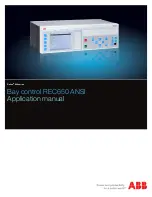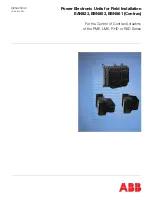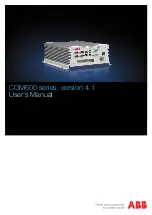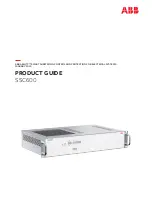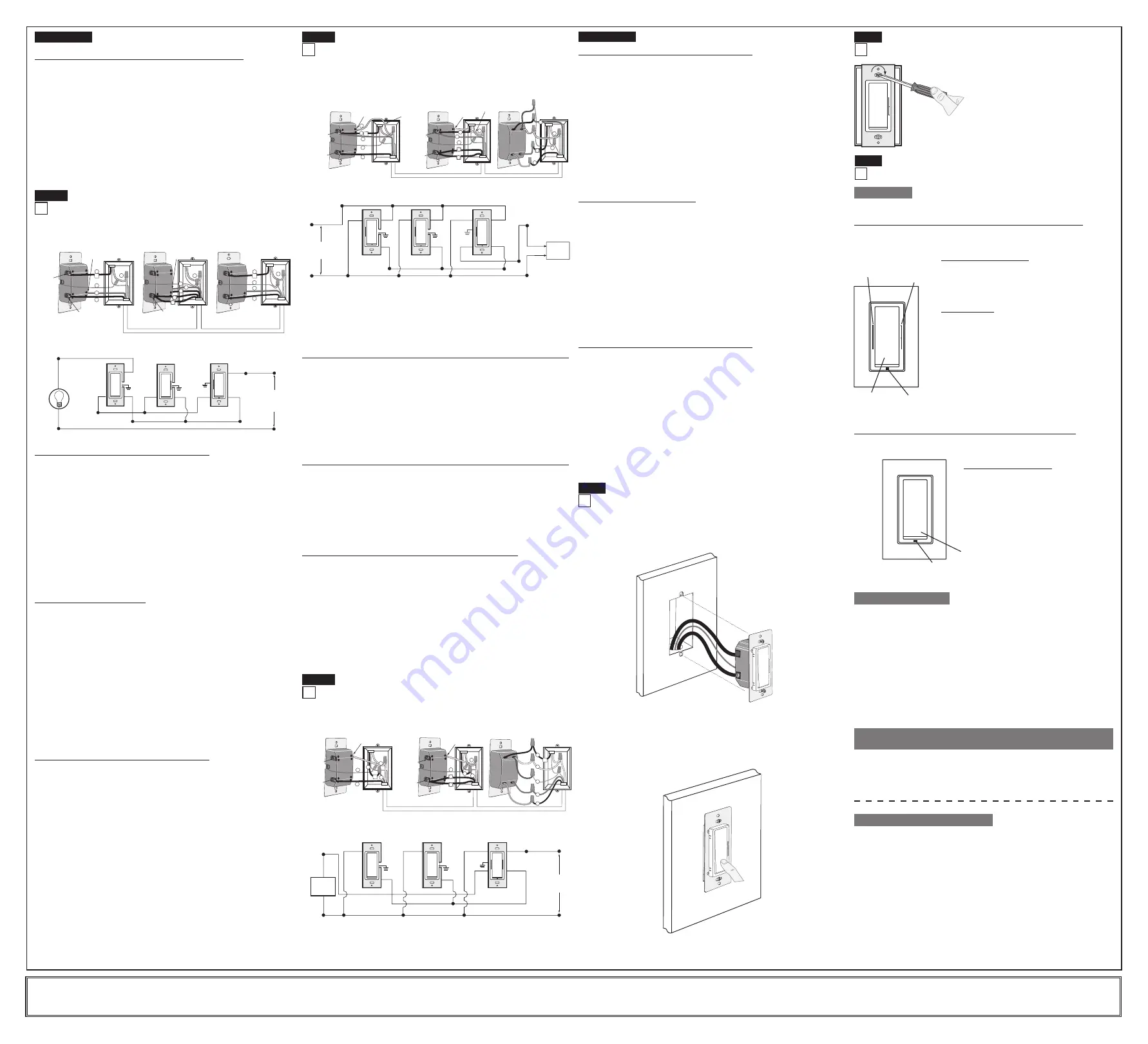
LIMITED 5 YEAR WARRANTY AND EXCLUSIONS
Leviton warrants to the original consumer purchaser and not for the benefit of anyone else that this product at the time of its sale by Leviton is free of defects in materials and workmanship under normal and proper use for five years from the purchase date. Leviton’s only obligation is to correct such defects by repair or replacement, at its option, if within such five year period the product is returned prepaid, with proof of purchase
date, and a description of the problem to
Leviton Manufacturing Co., Inc., Att: Quality Assurance Department, 59-25 Little Neck parkway, Little Neck, New York 11362-2591.
This warranty excludes and there is disclaimed liability for labor for removal of this product or reinstallation. This warranty is void if this product is installed improperly or in an improper environment, overloaded, misused, opened, abused, or altered in
any manner, or is not used under normal operating conditions or not in accordance with any labels or instructions.
There are no other or implied warranties of any kind, including merchantability and fitness for a particular purpose
, but if any implied warranty is required by the applicable jurisdiction, the duration of any such implied warranty, including merchantability and fitness for a particular purpose, is limited to five
years.
Leviton is not liable for incidental, indirect, special, or consequential damages, including without limitation, damage to, or loss of use of, any equipment, lost sales or profits or delay or failure to perform this warranty obligation
. The remedies provided herein are the exclusive remedies under this warranty, whether based on contract, tort or otherwise.
• Position all wires to provide room in outlet wall box for device.
• Ensure that the word "TOP" is facing up on the device strap.
• Partially screw in mounting screws in wall box mounting hole.
NOTE:
Dress wires with a bend as shown in diagram in order to relieve stress when
mounting device.
• Restore power at circuit breaker or fuse.
• See applicable operation section to ensure dimmer or switch is functioning properly.
If lights do not turn ON, refer to the TROUBLEShOOTING section.
•
for additional information, contact Leviton’s Techline at
1-800-824-3005 or visit Leviton’s website at www.leviton.com
Covered by one or more US & Foreign Patents and patents pending
Copyright
©
2006 Leviton Manufacturing Co., Inc.
All Rights Including Trade Dress Rights Reserved
Eco-10™ (Eco Series) is a trademark and Hi-lume
®
is a registered trademark of
Lutron Electronics Inc.
PK-93393-10-00-2C
Restore power:
Restore power at circuit breaker or fuse.
Installation is complete.
Step 8
Dimmer Remote Mounting:
TURN Off pOWER AT CIRCUIT BREAkER OR fUSE.
Step 7
Installation may now be completed by tightening
mounting screws into wall box. Attach wallplate.
vZ00R Dimmer Remote Operation (Dimmer may be unlighted):
NOTE:
The lights will turn ON at brightness set on dimmer’s DIM/BRIGHT bar. The
lighting can be controlled from either the dimmer or the remote location.
OpERATION
CLEANING:
Clean with a damp cloth.
DO NOT
use chemical cleaners.
•
Lights flickering
- Lamp has a bad connection.
- Wires not secured firmly under terminal screws of dimmer and/or remote.
•
Light does not turn ON and Locator LED does not turn ON
- Circuit breaker or fuse has tripped.
- Lamp is burned out.
- Lamp Neutral connection is not wired.
•
Intermittent dimmer operation
- Minimum load is under 40W.
•
Remote does not operate lights
- Ensure that total wire length does not exceed 300 ft (90 m).
- Ensure that only Coordinating Remotes are used with Vizia RF devices
TROUBLEShOOTING
WIRING DIMMER (3-Way wall box with Load connection):
Connect wires per WIRING DIAGRAM as follows:
• Green or bare copper wire in wall box to Green terminal screw or Green dimmer
lead.
• Load wall box wire identified (tagged) when removing old switch to dimmer terminal
screw marked "RD" or the Red dimmer lead.
• First Traveler Line Hot to dimmer terminal screw marked "BK" or the Black dimmer
lead.
• Remove Red insulating label from terminal screw marked "YL/RD" or the Yellow/
Red dimmer lead.
• Second Traveler wall box wire
(note color as above)
to dimmer terminal screw
marked "YL/RD" or the Yellow/Red dimmer lead. This traveler from the dimmer
must go to the terminal screw on the remote marked "YL/RD".
•
proceed to Step 6.
Step 5a cont’d
4-Way Wiring with Matching Remote (w/LEDs)
Application
:
Bk
YL/RD RD
Bk
YL/RD
Wh
RD
Bk
YL/RD
Wh
RD
4
3
3
2
1
5
Terminal
Screw marked
Red (RD)
Terminal
Screw marked
Black (Bk)
Terminal
Screw marked
Yellow/Red
(YL/RD)
Coordinating Remote
(3-Way Wall box from Step 2)
Coordinating Remote
(4-Way Box from Step 2)
Dimmer
(3-Way Wall Box from Step 2)
2
4
3
5
1
Terminal
Screw marked
Yellow/Red
(YL/RD)
Terminal
Screw marked
Red (RD)
6
2
1
5
4
hot (Black)
Neutral (White)
Load
Dimmer
Coordinating Remote
(no LEDs)
Coordinating Remote
(no LEDs)
YL/RD
YL/RD
YL/RD
RD
RD
Wh
Wh
RD
Bk
Bk
Bk
Black
not used
White
Line
120vAC, 60hz
not used
not used
Green
Ground
Green
Ground
Green
Ground
Step 5b
4-Way Wiring with Coordinating Remote (no LEDs)
Application:
NOTE:
Incandescent and Magnetic Low-Voltage installations only.
NOTE: Screw terminal dimmer depicted.
WIRING COORDINATING REMOTE (4-Way box):
Connect wires per WIRING DIAGRAM as follows:
NOTE:
Maximum wire length from dimmer to last remote is 300 ft (90 m).
• Green or bare copper wire in wall box to Green terminal screw.
• First Traveler and Third Traveler wall box wire
(note wire colors)
to terminal
screw marked "RD". These travelers from the remote in the 4-way box must go to
the terminal screw on the dimmer marked "RD" or Red dimmer lead, and to the
terminal screw marked "RD" of the remaining remote in the 3-way box.
• Second Traveler (tagged) and Fourth Traveler (tagged) wall box wire
(note wire
colors)
to terminal screw marked "YL/RD". These travelers from the remote in
the 4-way box must go to the terminal screw on the dimmer marked "YL/RD" or
the Yellow/Red dimmer lead, and to the terminal screw marked "YL/RD" of the
remaining remote in the 3-way box.
• Remote terminal screw marked "WH" should have White insulation label affixed.
NOTE:
If insulating label is not affixed to terminal screw marked "WH", use
electrical tape to cover. Remote terminal screw marked "BK" is not used. Use
electrical tape to cover.
WIRING DIMMER (3-Way box):
Connect wires per WIRING DIAGRAM as follows:
NOTE:
When using the coordinating remote without LEDs, the dimmer can be
installed on either the Line or Load side of the 3-way circuit.
NOTE:
Maximum wire length from dimmer to all installed remotes cannot exceed
300 ft (90 m).
• Green or bare copper wire in wall box to Green terminal screw or Green dimmer
lead.
• Line Hot (common) wall box wire identified (tagged) when removing old switch to
dimmer terminal screw marked "BK" or Black dimmer lead.
• First Traveler wall box wire to dimmer terminal screw marked "RD" or Red dimmer
lead
(note wire color as above)
. This traveler from the dimmer must go to the
terminal screw on the remote marked "RD".
• Remove Red insulating label from terminal screw marked "YL/RD" or Yellow/Red
dimmer lead.
• Second Traveler wall box wire to dimmer terminal screw marked "YL/RD" or Yellow/
Red dimmer lead
(note wire color as above)
. This traveler from the dimmer must
go to the terminal screw on the remote marked "YL/RD".
WIRING COORDINATING REMOTE (3-Way box):
Connect wires per WIRING DIAGRAM as follows:
NOTE:
Maximum wire length from dimmer to last remote is 300 ft (90 m).
• Green or bare copper wire in wall box to Green terminal screw.
• Load wall box wire identified (tagged) when removing old switch to terminal screw
marked "BK".
• First Traveler wall box wire
(note color as above)
to terminal screw marked "RD".
This traveler from the remote must go to the terminal screw on the dimmer marked
"RD" or the Red dimmer lead.
• Second Traveler wall box wire
(note color as above)
to terminal screw marked
"YL/RD". This traveler from the remote must go to the terminal screw on the
dimmer marked "YL/RD" or the Yellow/Red dimmer lead.
• Remote terminal screw marked "WH" should have White insulation label affixed.
NOTE:
If insulating label is not affixed to terminal screw marked "WH", use
electrical tape to cover.
•
proceed to Step 6.
BK
YL/RD
WH
RD
BK
YL/RD
WH
4
3
5
Additional
Neutral Wire
4
3
5
1
2
Additional
Neutral Wire
Black
Green
White
Red
Yellow/Red
1
2
4
3
2
Terminal
Screw marked
White (WH)
Terminal
Screw marked
White (WH)
Terminal
Screw marked
Yellow/Red
(YL/RD)
Terminal
Screw marked
Black (BK)
6
1
5
Matching Remote
(3-Way Wall box from Step 2)
Matching Remote
(4-Way Box from Step 2)
Control
(3-Way Wall Box from Step 2)
Terminal
Screw marked
Yellow/Red
(YL/RD)
Terminal
Screw marked
Black (BK)
RD
Hot (Black)
Neutral (White)
Control
Matching Remote
(w/LEDs)
Matching Remote
(w/LEDs)
YL/RD
YL/RD
Yellow/Red
Red
WH
White
WH
BK
BK
Black
Line
120VAC, 60Hz
Black
White
Load
Green
Ground
Green
Ground
Green
Ground
4-Way Wiring with Matching Remote (w/LEDs) for Controls
with Neutral Connection Application:
NOTE:
Electronic Low-Voltage, Mark 10™, Quiet Fan Speed and Electronic
Switch installations only.
NOTE:
Matching remotes are for use with non RF devices only.
NOTE: Dimmer is depicted.
Step 5c
NOTE:
The control must be installed in a wall box that has a Load connection. The
matching remote must be installed in a wall box with a Line Hot connection and a Neutral
connection. A Neutral wire to the matching remote needs to be added as shown.
If you are unsure about any part of these instructions, consult a qualified electrician.
NOTE:
Maximum wire length from control to all installed remotes cannot exceed
300 ft (90 m).
WIRING MATChING REMOTE (4-Way wall box with Line hot connection):
Connect wires per WIRING DIAGRAM as follows:
• Green or bare copper wire in wall box to Green terminal screw.
• First Traveler and Third Traveler wall box wire to remote terminal screw marked "BK"
in 4-way box, and to terminal screw marked "BK" of the remaining remote in 3-way
box.
• Second Traveler (tagged) and Fourth Traveler (tagged) wall box wire from control in
3-way box to remote terminal screw marked "YL/RD" in 4-way box and to terminal
screw marked "YL/RD" of the remaining remote in 3-way box
(note wire colors)
. This
traveler from the remotes must go to the terminal screw marked "YL/RD" or
Yellow/Red control lead.
• Line Neutral wall box wire to remote terminal screw marked "WH".
WIRING MATChING REMOTE (3-Way wall box with Line hot connection):
Connect wires per WIRING DIAGRAM as follows:
• Green or bare copper wire in wall box to Green terminal screw.
• Line Hot (common) wall box wire identified (tagged) when removing old switch and
First Traveler wall box wire to control terminal screw marked "BK" or Black dimmer
lead.
• Second Traveler wall box wire from control to remote terminal screw marked "YL/RD"
(note wire color as above)
. This traveler from the remote must go to the terminal
screw marked "YL/RD" or Yellow/Red dimmer lead.
• Line Neutral wall box wire to remote terminal screw marked "WH".
WIRING CONTROL (3-Way wall box with Load connection):
Connect wires per WIRING DIAGRAM as follows:
• Green or bare copper wire in wall box to Green terminal screw or Green dimmer lead.
• Load wall box wire identified (tagged) when removing old switch to terminal screw
marked "RD" or Red control lead.
• First Traveler Line Hot to terminal screw marked "BK" or Black control lead.
• Remove Red insulating label from terminal screw marked "YL/RD" or Yellow/Red
control lead.
• Second Traveler wall box wire
(note color as above)
to terminal screw marked
"YL/RD" or Yellow/Red control lead. This traveler from the control must go to the
terminal screw on the remote marked "YL/RD".
• Line Neutral wall box wire to terminal screw marked "WH" or White control lead.
•
proceed to Step 6.
4-Way Wiring with Coordinating Remote (no LEDs) for Controls
with Neutral Connection Application:
NOTE:
Electronic Low-Voltage, Mark 10™, Quiet Fan Speed and
Electronic Switch installations only.
NOTE: Dimmer is depicted.
Step 5d
WIRING CONTROL (3-Way box):
Connect wires per WIRING DIAGRAM as follows:
NOTE:
The control must be installed in a wall box that has a Line Hot connection.
NOTE:
Maximum wire length from control to all installed remotes cannot exceed 300 ft
(90 m).
• Green or bare copper wire in wall box to Green terminal screw or Green control lead.
• Line Hot (common) wall box wire identified (tagged) when removing old switch to
terminal screw marked "BK" or Black control lead.
• First Traveler wall box wire to terminal screw marked "RD" or Red control lead
(note
wire color as above)
.
• Remove Red insulating label from terminal screw marked "YL/RD" or Yellow/Red
control lead.
• Second Traveler wall box wire to terminal screw marked "YL/RD" or Yellow/Red
control lead
(note wire color as above)
. This traveler from the control must go to the
terminal screw on the remote marked "YL/RD".
• Line Neutral wall box wire to terminal screw marked "WH" or White control lead.
WIRING COORDINATING REMOTE (3-Way box):
Connect wires per WIRING DIAGRAM as follows:
NOTE:
"BK" and "RD" terminals on coordinating remote are unused. Tighten both
screws.
NOTE:
Maximum wire length from control to last remote is 300 ft (90 m).
• Green or bare copper wire in wall box to Green terminal screw.
• Load wall box wire identified (tagged) when removing old switch to First Traveler
(note
color as above)
.
• Second Traveler wall box wire
(note color as above)
to terminal screw marked
"YL/RD". This traveler from the remote must go to the terminal screw marked "YL/RD"
or Yellow/Red control lead.
• Remove White insulating label from terminal screw marked "WH".
• Line Neutral wall box wire to terminal screw marked "WH".
•
proceed to Step 6.
BK
YL/RD
WH
BK
YL/RD
WH
3
5
1
2
3
4
5
Black
White
Green
Red
Yellow/Red
2
1
1
4
4
3
5
2
Terminal
Screw marked
White (WH)
Terminal
Screw marked
White (WH)
Terminal
Screw marked
Yellow/Red
(YL/RD)
Terminal
Screw marked
Black (BK)
Terminal
Screw marked
Yellow/Red
(YL/RD)
Terminal
Screw marked
Black (BK)
Coordinating Remote
(3-Way Wall box from Step 2)
Coordinating Remote
(4-Way Box from Step 2)
Control
(3-Way Wall Box from Step 2)
6
RD
RD
Hot (Black)
Neutral (White)
Control
Coordinating Remote
(no LEDs)
Coordinating Remote
(no LEDs)
YL/RD
YL/RD
Yellow/Red
RD
White
Red
Black
Black
BK
WH
WH
White
Line
120VAC, 60Hz
RD
not used
not used
not used
not used
BK
Load
Green
Ground
Green
Ground
Green
Ground
WIRING COORDINATING REMOTE (4-Way box):
Connect wires per WIRING DIAGRAM as follows:
NOTE:
"BK" and "RD" terminals on coordinating remote are unused. Tighten both
screws.
NOTE:
Maximum wire length from dimmer to last remote is 300 ft (90 m).
• Green or bare copper wire in wall box to Green terminal screw.
• Connect First Traveler wall box wire to Third Traveler wall box wire
(note wire colors)
to terminal screw marked "RD" of remote in 4-way box, and to terminal screw marked
"RD" of the remaining remote in 3-way box.
• Connect Second Traveler and Fourth Traveler wall box wire
(note wire colors)
to
terminal screw marked "YL/RD" of remote in 4-way box, and to terminal screw marked
"YL/RD" of the remaining remote in 3-way box.
This traveler from the remotes must go to the terminal screw marked "YL/RD" or
Yellow/Red control lead.
• Remove White insulating label from terminal screw marked "WH".
• Line Neutral wall box wire to terminal screw marked "WH".
Step 5d cont’d
Testing your Remote prior to completely
mounting in wall box:
Step 6
push pad (Default settings)
Turn ON from Off position:
Tap – Lights turn ON to preset level.
Press and Hold – Lights turn ON to full bright.
Turn Off from ON position:
Tap – Lights turn OFF.
DIM/BRIGhT Bar
BRIGhTEN:
Press upper half of DIM/BRIGHT Bar – Lights brighten to
desired level.
DIM:
Press lower half of DIM/BRIGHT Bar – Lights dim to
desired level.
If you continue to hold, the lights will DIM to minimum
level and then turn OFF.
If there is a power outage, when the power is restored
the lights will return to the last setting before the power
interruption.
DIM/BRIGhT
Bar
push pad
Locator
Light
LED
Brightness
Display
vZ0SR Switch Remote Operation (Switch may be unlighted):
NOTE:
The lights will turn ON at brightness set on dimmer’s DIM/BRIGHT bar. The
lighting can be controlled from either the dimmer or the remote location.
push pad (Default settings)
Turn ON from Off position:
Tap – Lights turn ON to preset level.
Turn Off from ON position:
Tap – Lights turn OFF.
If there is a power outage, when the
power is restored the lights will return
to the last setting before the power
interruption.
push pad
Locator
Light
This equipment has been tested and found to comply with the limits for a Class B
Digital Device, pursuant to Part 15 of the FCC Rules. These limits are designed to
provide reasonable protection against harmful interference in a residential installation.
This equipment generates, uses, and can radiate radio frequency energy and, if not
installed and used in accordance with the instructions, may cause harmful interference
to radio communications. However, there is no guarantee that interference will not
occur in a particular installation. If this equipment does cause harmful interference to
radio or television reception, which can be determined by turning the equipment OFF
and ON, the user is encouraged to try to correct the interference by one or more of the
following measures:
• Reorient or relocate the receiving Antenna.
• Increase the separation between the equipment and the receiver.
• Connect the equipment into an outlet on a circuit different from that to which the
receiver is connected.
• Consult the dealer or an experienced radio/tv technician for help.
fCC COMpLIANCE STATEMENT



